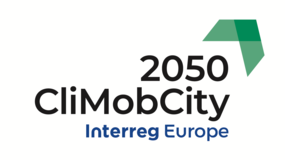Meeting 6B consists of two parts, one on March 1&2 (online) and the second one on 7 & 8 April - this is the first physical meeting again, organised in hybrid form to be accessible for on-line participants.
The 1 & 2March meeting (online) is dedicated to discussing the progress of mobility modelling, interpreting mobility effects, CO2 modelling and discussing these results, as well as on writing the Action Plans. There are no site visits or seminar sessions during this meeting.
Regarding the modelling results, most striking results are:
- Thessaloniki: very significant mobility effects of the metro line introduction (especially in peak hours) –already in the Business as Usual scenario, and the interesting partial effects of electric car sharing (4% vehicle kilometres by shared vehicles resulting in -1% emissions), electrification of busses (-49% emissions) and municipal transport; also very important to note is that demographic and spatial development has a huge impact resulting in an estimated +7 to +11% increase in traffic in BAU making it difficult to still realize emission reductions via mobility measures;
- Bydgoszcz: the interesting spatial activities distribution ideas (‘compact city’) with relevant effects mobility effects and the potential of even larger effects as a result of ‘active modes’ use (effects yet to be calculated), a quite significant effect of car-traffic reducing measures within the inner city, however, also a relatively limited overall effect for the study-area as a whole;
- Plymouth: the quite large composed mobility effects of 13% reduction in car mileage.
On basis of the Plymouth results, PIK has made an estimation of the CO2 effects. The reduction in car mileage (13%) as a result of the measure package results in a bit more than 25% CO2 emission reduction, which in itself is quite impressive.
Further more, the cities discussed the progress in writing their action plans. Cities use inspiration from site visits, seminar sessions, interregional learning (discussing about potential measures and their effects) and modelling results for developing Actions.
During the 6 & 7 April meeting, these discussions are furtere elaborated. Also, the mid-term meeting findings are discussed, including the recommendations on improving the draft Action Plans.
Further, Thessaloniki organises interesting site visits to the metro construction site, the CUTLER project on controlled parking, and the Smart Mobility Living Lab facilities of HIT.


